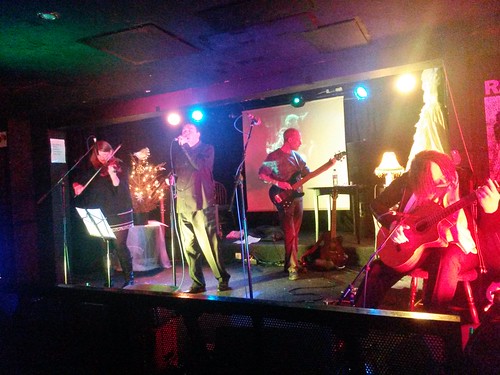John Muir – ‘The Story of My Boyhood and Youth’
I have seen flocks streaming south in the fall so large that they were flowing over from horizon to horizon in an almost continuous stream all day long, at the rate of forty or fifty miles an hour, like a mighty river in the sky, widening, contracting, descending like falls and cataracts, and rising suddenly here and there in huge ragged masses like high-plashing spray. (p. 74)This is the sight of passenger pigeons migrating, which is poignant from a modern-day perspective as they are now extinct. Muir doesn’t comment directly on the population decline (though it was almost complete by the time of publication in 1913: the last known passenger pigeon, Martha, died in captivity the following year), but he gives a brutal account of the hunting that caused it. His voice is by turns precise, matter-of-fact, rhapsodic. He is sparing with his wonderment, making it the more striking when it does appear, and he never complains. Not even when his father has him dig a 90-foot well on their second farm with a hammer and chisels, which takes months, and nearly kills him when ‘deadly choke-damp – carbonic acid gas that had settled at the bottom during the night’ (p. 107) overcame him one morning. After that, they learned how to clear the air in the well first, and how to test for oxygen with a candle. In the following chapter comes the bald statement ‘Father at this period devoted himself entirely to the Bible and did no farm work whatever’ (p. 118). So – I say he doesn’t complain, but you know what he thinks. It’s remarkable though that, given this treatment, his father only emerges as a tough man, even with the odd glint of humour, and not a monster.
Of the many advantages of farm life for boys one of the greatest is gaining a real knowledge of animals as fellow-mortals, learning to respect them and love them, and even to win some of their love. Thus godlike sympathy grows and thrives and spreads far beyond the teachings of churches and schools, where too often the mean, blinding, loveless doctrine is taught that animals have neither mind nor soul, have no rights that we are bound to respect, and were made only for man, to be petted, spoiled, slaughtered or enslaved. (pp. 50-1)This is the heart of the book, I think. Animals are what animate it, more than any human character. Domestic and farm animals like horses, dogs and oxen make their personalities known (we get grief from an ox, faithfulness from a horse, and gluttony from a dog, who can’t stop himself eating the neighbours’ chickens); and wild animals do strange and touching things too. A shrike enters a gopher burrow, behaving more like a ferret than a bird; a goose at the head of a migrating group turns back to try to help another goose which has been shot; a bee uses Muir’s head as a navigation point and is utterly confused when he moves.
If that were all, it would be enough. What emerges in the final chapters, though, is an idea of how irrepressible Muir really was; how much more than a skilled observer. It comes about through an argument with his father over reading, that he is granted permission to get up as early as he likes. Going to bed at eight, as the whole family do, he wakes at one o’clock, gaining five hours on the rest of them. It’s too cold to read, though, so instead he works on his inventions – directly under his father’s bedroom, of course, making him regret this lapse in severity. These inventions (clocks, barometers, thermometers) are his ticket out of obscurity, and to the University of Madison. As though it were the most normal thing in the world, he pre-empts Wallace and Gromit’s The Wrong Trousers, Heath Robinson’s drawings and Buster Keaton’s The Scarecrow*, with his glorious, crazy inventions:
I invented a desk in which the books I had to study were arranged in order at the beginning of each term. I also made a bed which set my on my feet every morning at the hour determined on, and in dark winter mornings just as the bed set me on the floor it lighted a lamp. Then, after the minutes allowed for dressing had elapsed, a click was heard and the first book to be studied was pushed up from a rack below the top of the desk, thrown open, and allowed to remain there the number of minutes required. Then the machinery closed the book and allowed it to drop back into its stall, then moved the rack forward and threw up the next in order, and so on, all the day being divided according to the times of recitation, and time required and allotted to each study. (p. 131)____________________
* Also Chitty Chitty Bang Bang, S. has pointed out.















